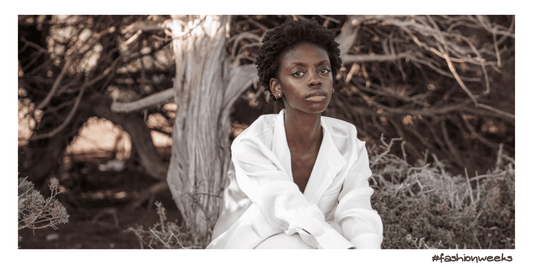The other day, I was on the phone with my mum, when she declared that she will, from now on, try to buy only organic cotton clothes.
I felt a sense of pride. After years of me talking about sustainability, fashion, the importance of making better choices, and buying better clothes-it seems like I finally did some change. I mean, she didn’t say she will stop shopping from big brands. But considering how stubborn my family is, every tiny win is a win. Again, I spent years trying to convince them into changing anything!
Then my mother asked a critical question: “But how can I tell that it’s really organic cotton? These days, they put such words everywhere, they don’t have to mean anything”.

Certifications matter
I told my mother to look for “certified organic cotton” the next time she shops.
Why?
Because I do think that certifications in fashion generally matter. Just like when shopping for food or other items, we are facing a lot of choices. And things can get confusing, especially when you don’t have much time to invest in understanding different options and brands. This is where certifications come in handy, they can help you navigate.
Now, most certifications aren’t coming from the governments but, instead, from private bodies. Still, they are a step in this direction. Internationally recognised and independent certifications do signify that there has been a certain audit, check, and some regulations have been followed. It’s an indication that there’s a body or an organisation that can testify for a claim that a brand makes.
The question of certifications in fashion is a complex one. But I usually like to bring up 5 main points around this topic. Here they are!
Brands can and do create their own certifications and labels. Which means that they audit and inspect themselves. While self-evaluation isn’t always a bad thing, it sort of beats the point of certifications in fashion. Because it means that certification is given by their own rules, which aren’t always clear or are made to fit the needs of the brand.
Here are some third party, globally recognised certifications, with high standards:

For the rest of the text, I’ll be primarily referring to the above certifications and using them as examples.
Each certification means a different thing. Some are specific to the textile industry (like GOTS), or even fabric (BCI). Moreover, some certifications will focus on labour conditions (Fair Trade), the source of the material (FSC), or the chemical component and safety of the product (Oeko Tex).
At least not always.
Clearly, not a lot of companies can certify each product they make (more about this later). In some cases, even a slight change in the product will require a new certification process. It means that a company must have a good plan and somebody who can take care of the process for them. And even when they do have, most certifications speak about the composition, ingredients, chemicals, or origin of the material that goes into the product. They don’t say much (or anything at all) about the brand behind the product or their business. A company can carry organic cotton t-shirts and still overproduce, exploit their workers, or greenwash, and so on.
With some exceptions, of course!
For example, Oeko Tex, which is popular everywhere but especially in Europe, is possibly the highest guarantee you can get that the clothes you’re about to buy are safe for your health. Yet, there’s nothing it can tell you about whether the same clothes are good for the people who made them. Were they paid well? Did they make the clothes in safe conditions?
Other certifications may tell us something about the working conditions, like Fair Trade, BCI (which focuses on the farmers), or GOTS. And of course, B Corp looks at the entire supply chain.
Some certifications require an annual membership that can easily reach several thousands of dollars. That is, in addition to having to pay for the certification process in the first place.
Even more, as mentioned above, many certifications are product-specific. Each new or altered product calls for a new process. For many small brands, this is beyond their capacities. Though many small brands have shorter and more transparent supply chains, they simply cannot afford the certifications.
The same is with small factories. Unless the manufacturers are working with bigger brands, holding a certification is unatonable for them.

To sum it up…
Just like the presence of a third-party certificate isn’t always an indication of a company’s sustainability, the lack of the same isn’t an indication that the company isn’t sustainable.
Certificates are a good orienteer and companies should consider them. But they are not the ultimate indication of anything. I always encourage people to look beyond certifications and ask questions. It always comes down to transparency: what can a company tell you about their fabrics and people involved in their supply chain?
If we take a look at Meune, you will see that they choose to work with an Italian company that makes GOTS-certified denim fabric. This guarantees that the textile Meune produces is certified organic cotton. Yet, this alone doesn’t tell us about how their products are made nor how the company works.
Luckily, Meune is a highly transparent brand. You can read all about how they source and manufacture their clothes. And if you have any questions, you can always get in touch.
Written by Tena
About Tena:




